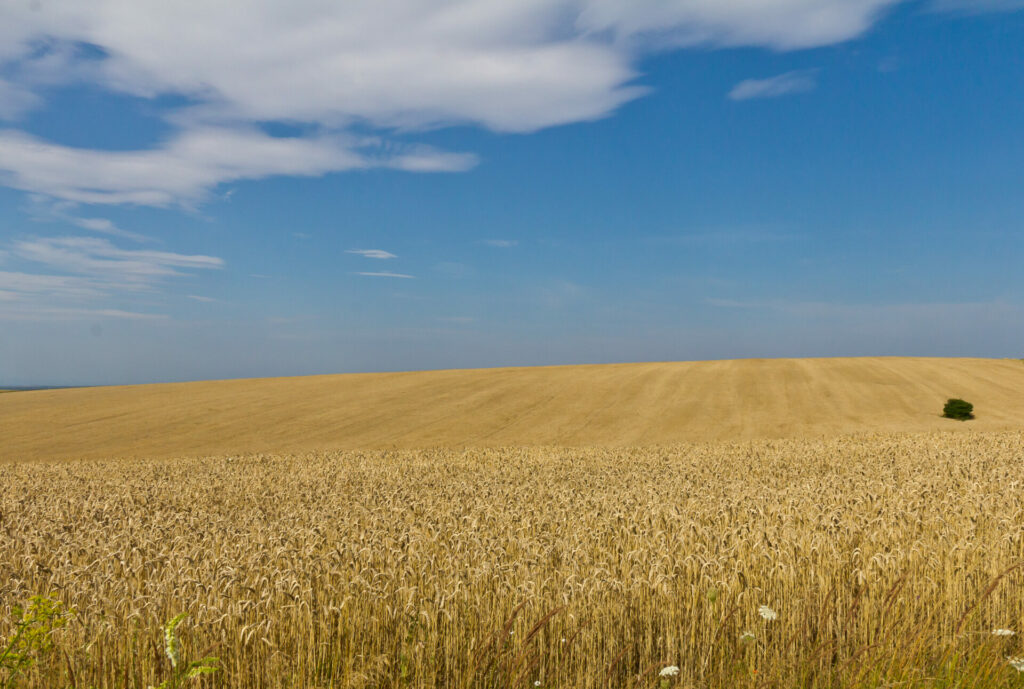The number of ploughed fields in Ukraine has dropped by a quarter since the start of Russia’s invasion, according to Ukraine’s Deputy Agriculture Minister Taras Vysotskyi on 13 June.
The minister predicts that this year's harvest will be sufficient for domestic demand, due to the mass exodus of Ukrainians. The export situation, however, is looking much more uncertain. Ukraine is a leading exporter of grain, vegetable oils, and other agricultural products.
Grain blocked and stolen
Tonnes of Ukrainian grain remains trapped in ports by Russia. Ukraine is an essential food exporter for much of the world. Nations in North Africa, such as Egypt, rely on Black Sea grain for around 80% of their supply.
In an interview with CNN, Vysotskyi said that an estimated 500,000 tonnes of grain had been stolen by Russian forces. Ukrainian President Volodymyr Zelensky has warned that Ukraine faces up to a 40% decline in harvest this year, significantly increasing the risk of global famine.
“We have lost 25% of the arable area. In terms of volumes, of course, it is more. We anticipate that the harvest will be around 35% less than in previous years, which means around 30 million tonnes less, 35-40% less, almost half of the previous year’s harvest,” Vysotskyi said.
Last year, Ukraine harvested around 86 million tonnes of grain. This year, this figure is set to drop to around 48.5 million tonnes.
The total 2022-2023 exportable surplus is expected to be around 30 million tonnes, with wheat exports comprising around 17-20 million tonnes. If ports remain blocked, the minister expects that Ukraine will export just 2 million tonnes of grains per month, a third of pre-war levels.
On 11 June, the minister had said that an additional 300,000 tonnes of grain may have been destroyed by Russian shelling while it sat in warehouses in Kyiv.
Russia threatens world hunger
If nothing changes soon, the United Nations predicts that there will be a "hurricane of hunger" as a result of the conflict, as 15 African countries affected by widespread poverty import over 50% of their wheat exclusively from Ukraine and Russia.
Russia has made promises to resolve issues relating to grain exports from Ukraine, claiming that Ukraine was responsible for mining its waters and blockading its own ports. The Ukrainian deputy agricultural minister rejected these allegations.
“It’s untrue, the problem is Russian military ships, it’s not the case of Ukraine. So far, they don’t safely allow civilian ships to move in and out of Ukrainian ports,” he said.
To attempt to protect the EU’s markets, the economic bloc has dropped all tariffs and restrictions on trade with Ukraine in order to facilitate the land transportation of grain to Europe. According to Ukrainian Deputy Foreign Minister Dymtro Senik, land shipments of grain are facing repeated bottlenecks through Poland and Romania, as Ukraine scrambles to prevent a global food crisis.
The price of foods made with wheat and oils across Europe and the Middle East has jumped dramatically on the back of supply issues. In Belgium, the price of edible oils rose by 26.5% in May and bakers across the country have struggled to make ends meet as the price of flour increases dramatically.

